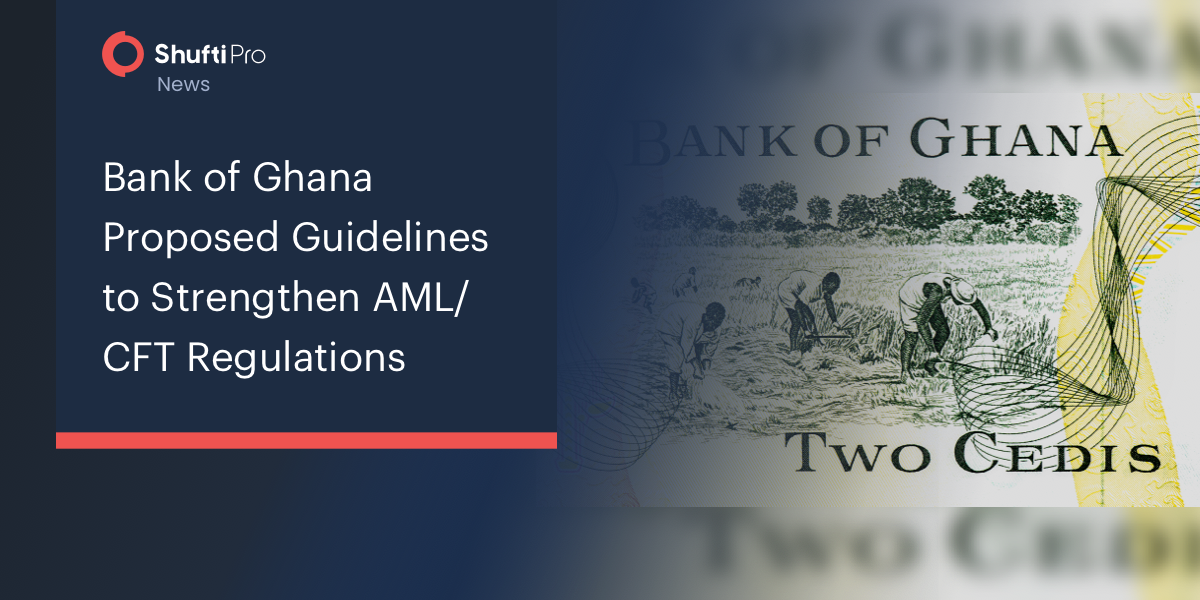Bank of Ghana Proposed Guidelines to Strengthen AML/CFT Regulation

The Bank of Ghana proposed guidelines for banks to enhance the Anti-Money Laundering and Combating Financing of Terrorism (AML/CFT) regulations.
The Head of Financial Integrity Office, Mr. George Nkrumah said, Ghana’s financial institutions need strong regulatory checks to counter money laundering and terrorist financing through the banking sector.
“The high standard of Anti-Money Laundering and Combating Financial Terrorism (AML/CFT&P) compliance by financial institutions is vital in ensuring a sustainable regime requisite for financial stability. Due diligence is key, when you get it wrong, you will get all wrong,” he said.
Mr. George addressed these concerns at a two-day workshop for Rural and Community Banks (RCBs), Microfinance Institutions (MFIs), and other representatives of the Ghana Association of Microfinance Companies in central and western regions.
The purpose of this workshop was to help financial firms comply with the country’s AML standards to enhance approaches of transaction reporting to the Financial Intelligence Center (FIC).
However, the country had developed systems embedded in AML services particularly for Financial Intelligence Units (FIU’s) and United Nations Office on Drugs and Crime (UNODC).
Mr. George stated that financial corporations are required to implement regulatory measures to assure that their services and operations are fraud-free. In addition to this, the banking sector must also ensure that they are AML/CFT compliance as well as strong customers’ background screening.
“If you don’t comply, you can be penalized to about 100,000 penalty units, and one penalty unit is GHc12.00. Apart from the appropriate penalties, we can also revoke your license or we also do ‘name and shame’ by publishing our findings,” he said.
Mr. George stated, “There are laws and regulations and the BoG would strive to ensure strict compliance together with the Financial Intelligence Center. We need to avoid the short -cuts which do not help the system.”
He also addressed that, demands for financial institutions meant that all the stakeholders either bank representatives or customers, can discuss the issues that are important for the banking sector and the country.
Mr. George recalled that as part of continued engagement with Regulated Financial Institutions (GFIs), the Bank of Ghana in collaboration with ARB Apex Bank and FIC provided in-house training on how to expand money laundering and terrorist financing risk assessment mechanism for lower-tiered financial firms.
He also reported that Ghana was removed from the Financial Action Task Force (FATF) gray list after the on-site examination was conducted by the International Cooperation Review Group (ICRG).
Mr. Nkrumah said, “To remain off the grey list, stakeholders in the fight against Money Laundering and Financial Terrorism (ML/TF) we will have to ensure compliance with the legal provisions of the laws and regulations in building and sustaining a robust Anti-Money Laundering and Combating Financial Terrorism and Proliferations (AML/CFT&P) regime.”
“Ghana is reasonably compliant with the technical requirements of AML/CFT P the emphasis of the regulator is on the effectiveness of supervisory activities, and preventive measures. Sensitization workshops are key in equipping accountable institutions to acquire relevant expertise and knowledge in ensuring AML/CFT&P compliance,” he added.
However, he praised the significant role of FIC in collaborating with local banks to train employees as well as to render awareness regarding AML/CFT compliance to combat financial crimes.
Suggested Read: Bank of Ghana to Introduce Digital Currency in ‘Near Future’

 Explore Now
Explore Now













